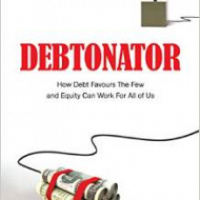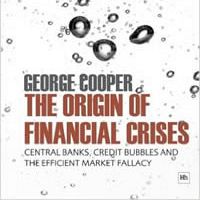
Loading...
11th January 2017


Much that was unspeakable in politics just twelve months ago is now at the top of the agenda. Limits on immigration, protectionist trade policies and seismic shifts in the global geopolitical fabric are now widely discussed. We are entering a new world where debate at the highest level can accommodate ideas previously held only at the fringes. President-Elect Trump might be in the vanguard of this sea-change but it reflects a more international phenomenon, rooted in growing inequality and the consequent distrust of globalisation and financial capitalism in its current form.
In the heat of the presidential debate, few would have noticed one proposal on the Trump/Pence campaign trail that, if put into practice, would be a game-changer. Although the proposed cut in the headline corporate income tax rate, from 35% to 15%, was widely debated (and often seen as evidence that Trump’s “anti-corporatist” image was ill-deserved) some important footnotes on taxation were overlooked. One of which, scrapping the tax deductibility of interest expenses, is an idea whose time has come.
America’s headline corporate income tax rate is high by international standards and, as a result, the US has a problem with some of its largest corporations booking profits overseas (which Trump proposes tackling through an amnesty on repatriated earnings). The Trump/Pence beef about the tax deductibility of interest expenses, however, is not unique to the US - it is a global phenomenon and a global problem.
As I wrote for Prospect Magazine nearly two years ago (The unspoken political truth about debt), the enormous support for the use of debt in corporations has, along with extreme monetary policy, helped fuel a debt bubble and concentrated ownership of equity – both of which lie behind much of the political angst we see today. The so-called tax shield subsidises the returns to equity for the few who have it and it discourages business owners from using equity finance that would more broadly distribute the financial rewards of their success and stabilise their companies.
Scrapping the so-called debt shield is not a new idea; A Presidential Panel on tax reform proposed it in 2005, in 2011 an IMF economist said it clearly created “significant inequities, complexities and economic distortions” and the European Commission concluded pretty much the same in 2012. With one or two exceptions (Germany capped the deductibility of interest in 2008) they have not yet though had much impact on policy.
Promises of tax reform in the US are notoriously more difficult to keep in government than they are to propose on the campaign trail; George H.W. Bush found himself supporting several tax increases in 1990 despite his “Read my lips: no new taxes” promise two years earlier. Trump, however, has the Republicans in control of both congressional chambers and will find many supporters if he pushes for the change – the House Grand Old Party’s “A Better Way” plan, led by Speaker Paul Ryan, had the debt shield as one of its five key targets with respect to taxation. Trump’s proposal is also wrapped up with another footnote that is politically more difficult to oppose, allowing the immediate expensing of business capital expenditure which, in theory at least, will create jobs by encouraging investment. A unilateral move by the US on the matter might also make great sense from a fiscal standpoint; one study by Robert Pozen suggests that limiting the tax shield by just 30 per cent would allow a reduction in the standard rate of corporate tax to 25 percent while maintaining the overall tax take. 2017, one way or another, is likely to see the most comprehensive change in the Internal Revenue Code since 1986.
There’s plenty who will fight it. The BUILD (Business United for Interest and Loan Deductibility) Coalition, a lobbying group, has been fighting to keep the debt shield for some years – arguing that any limitation on interest deductibility would raise costs and hurt growth in jobs. Their core mission, which they say is supported by small and large businesses in all sectors of the economy, is to “preserve 100 percent interest deductibility, a core component of the tax code for 100 years”. Their historical account is about right, the quirk in the tax code has in fact existed since 1918 when the allowance was introduced as a temporary measure to protect indebted company owners hit by an excess-profit tax. When the excess-profit tax was repealed in 1921, however, the tax deductibility of interest expenses mysteriously remained and has since, with few exceptions, become ubiquitous around the world.
So, if the time has come to remove the debt shield, what might the implications be from an investment perspective?
Tax accountants would be tied up for years figuring out the impact company by company and it would be wrong to make specific calls at this stage. International profits would be exempt from the change unless other jurisdictions followed suit and the actual utilised debt shield is not totally clear at the company level. It’s fair to assume, however, that the most leveraged companies i.e. those that use the debt shield the most, would see the biggest negative impact on earnings. To sense the degree of that hit, Equitile looked at around 300 companies from the S&P which were profitable in 2015. Assuming none of their interest costs were deductible the most leveraged quintile, which had an average net debt to equity ratio of 258% in 2015, would have seen an 11% cut to net earnings based on interest charges and their average tax rate in that year. Even the more modestly leveraged second quintile would have seen an 8% cut to net earnings. Only the most conservatively financed cohort, which actually had net cash on their balance sheets on average, would have seen little to no impact. If the debt shield was eliminated the impact on earnings would be permanent until Chief Financial Officers built the change into their capital structuring calculations. The incentive to de-leverage, or at least not to increase debt, would change how they finance themselves to a large degree.
Much of what Trump has promised, as with all Presidents before him, will not be delivered but if this apparently innocuous detail becomes real, the outcome could be more resilient corporations and wider distribution of their profits. As far as investors are concerned, a cut in headline corporate tax could float all boats – they might be advised, however, to check the footnotes.
Andrew McNally is Chief Executive Officer of Equitile Investments Ltd
andrew.mcnally@equitile.com
 George Cooper Talks to Bloomberg Radio - Time to Brexit-proof Investment Funds
2
George Cooper Talks to Bloomberg Radio - Time to Brexit-proof Investment Funds
2
 An Impossible Trinity?
2
An Impossible Trinity?
2
 Bloomberg Radio - Equitile’s Cooper: How to Fix Economics
2
Bloomberg Radio - Equitile’s Cooper: How to Fix Economics
2
 Interview with our Chief Investment Officer, George Cooper
2
Interview with our Chief Investment Officer, George Cooper
2
 Money, Blood and Revolution
2
Money, Blood and Revolution
2
 Debt & the magical mathematics of Brahmagupta
2
Debt & the magical mathematics of Brahmagupta
2
 George Cooper Talks to Bloomberg Radio - Central Bankers Are Irresponsible
2
George Cooper Talks to Bloomberg Radio - Central Bankers Are Irresponsible
2
 Can fair fees make active managers more sustainable?
2
Can fair fees make active managers more sustainable?
2
 Is it time to rethink monetary policy?
2
Is it time to rethink monetary policy?
2
 Tim Haig interviews George Cooper
2
Tim Haig interviews George Cooper
2
 Build a company on prudence and trust, not debt
2
Build a company on prudence and trust, not debt
2
 Lumbering corporate dinosaurs face mass extinction
2
Lumbering corporate dinosaurs face mass extinction
2
 Revival of the Fittest
2
Revival of the Fittest
2
 An interview with World Finance
2
An interview with World Finance
2
 Panama Papers create a golden opportunity for UK fund houses
2
Panama Papers create a golden opportunity for UK fund houses
2
 The unspoken political truth about debt
2
The unspoken political truth about debt
2
 Undoing the Mistakes of QE
2
Undoing the Mistakes of QE
2
 The Lost Shield? - The small print in Trump's tax plan
2
The Lost Shield? - The small print in Trump's tax plan
2
 Debtonator - How Equity Can Work for All of US
2
Debtonator - How Equity Can Work for All of US
2
 'Fixing Economics' by George Cooper: Book Review
2
'Fixing Economics' by George Cooper: Book Review
2
 Captain Kirk and the science of economics
2
Captain Kirk and the science of economics
2
 Seductive Charm
2
Seductive Charm
2
 John Authers of the Financial Times in conversation with George
2
John Authers of the Financial Times in conversation with George
2
 Hanging the Wrong Contract?
2
Hanging the Wrong Contract?
2
 A creditable recovery
2
A creditable recovery
2
 Is corporate debt addictive?
2
Is corporate debt addictive?
2
 The Origin of Financial Crises
2
Register for Updates
12345678
-2
The Origin of Financial Crises
2
Register for Updates
12345678
-2